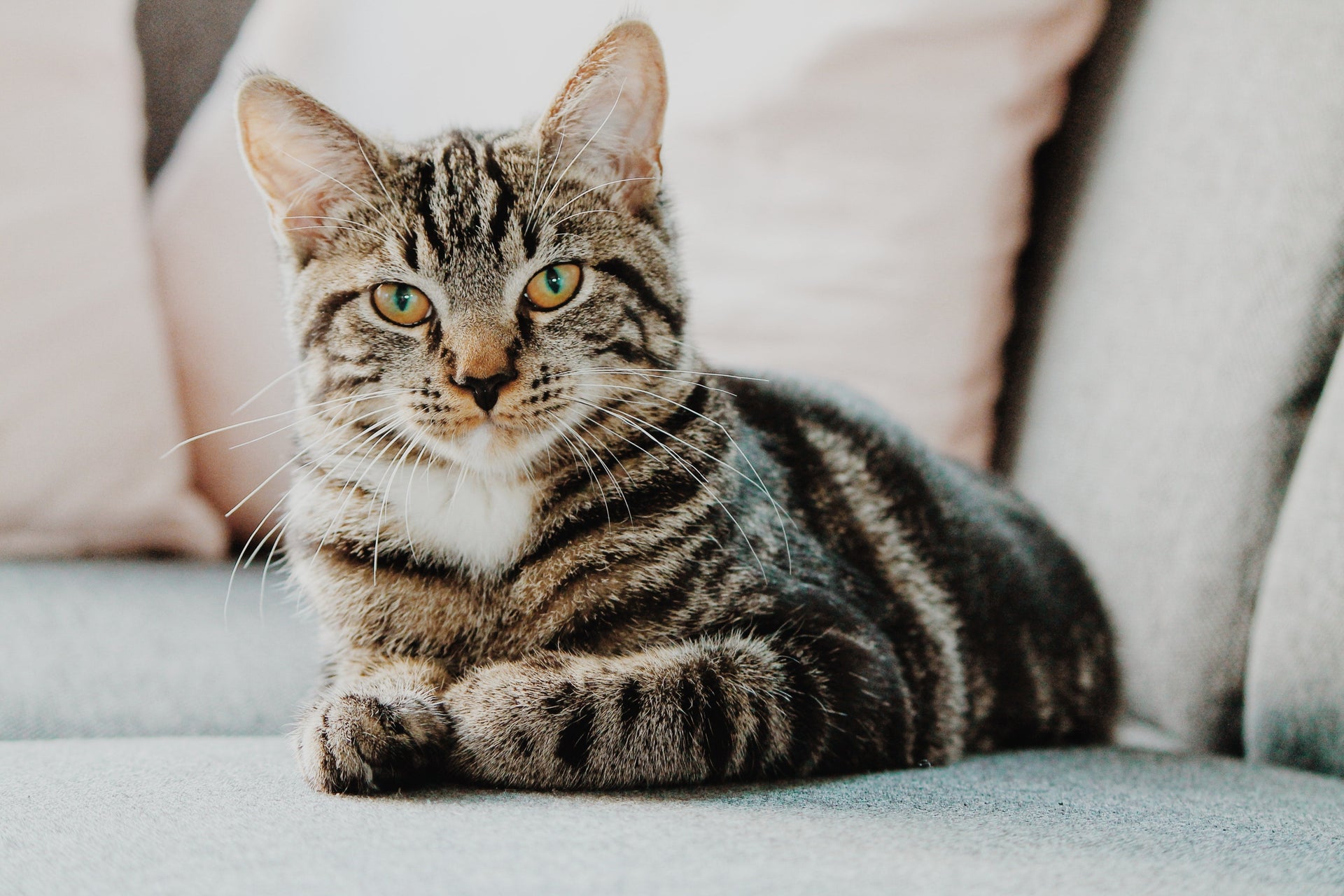The scientific benefits of omega 3 fatty acids for cats
July 14, 2021

The scientific benefits of omega 3 fatty acids for cats
Omega-3 has long been thought to have numerous health benefits for humans, including improved joint mobility, reduced depression, and improved hair, skin, and nail health. But did you know it can be beneficial to your cat as well? It's simple to provide your cat with a comprehensive and balanced omega-3-rich diet, and it can make a big impact in their general health.
What is omega-3?
Omega-3s are a type of fatty acids found in your cat's diet. There are 11 different forms of omega-3 fatty acids, but DHA (docahexaenoic acid) and EPA (eicosapentaenoic acid), both of which can be found in marine sources, are the most widely addressed when it comes to our feline companions.
Omega 3’s and whole body health
Omega 3 supplements for cats with heart illness can help reduce inflammation associated with heart failure, as well as muscle loss associated with heart failure. Apart from their anti-inflammatory properties, omega-3 fatty acids have been shown to help prevent irregular cardiac rhythms (arrhythmia).
How much omega 3 for cats
Always consult with your veterinarian before giving your cat omega-3 fatty acids (or any supplement). This is to guarantee they are receiving the correct dose (recommended doses vary according to the ailment being treated) and from a reputable brand.
Many pet meals already include some omega-3 fatty acids, and your veterinarian can advise you on whether and how much to supplement. Additionally, supplementation with omega-3 fatty acids may not be beneficial for many pets, particularly those with gastrointestinal or bleeding issues.
What benefits does it have for your cat?
Omega-3 fatty acids have anti-inflammatory effects, making them an excellent alternative for cats suffering from allergies, dry skin, or hot spots.
Fatty acids help give your cat a thicker, shinier coat because they are just that — fat. Omega-3 fatty acids help promote the general health of hair follicles, which can reduce hair loss. For cats, this has an added benefit: less shed hair during self-grooming implies fewer hairballs.
Omega-3s help to reduce inflammation in the joints, which can be a problem for older cats with arthritis. Research has shown cats given daily dosages of fish oil were shown to be more able to navigate around, including jumping and climbing stairs, than cats without the added omega 3's.
The feeding of a urinary cat food with omega 3 and antioxidants has been found to reduce the frequency of repeated bouts of urinary tract conditions in cats.
Finally, obesity is a prevalent disease in our cats, and it can potentially result in serious ailments like diabetes. DHA and EPA, the two major omega-3 fatty acids contained in fish oil, have been demonstrated to increase weight loss by up to 57 percent in pets on calorie-restricted diets, relieving joint strain and improving a cat's overall well-being.
How to get more omega-3 in your cat's diet
It's as simple as choosing a meal that has omega-3-rich foods like salmon, mackerel, or trout to provide your cat omega-3s. Check your pet food label to see if fish oil or fishmeal is listed as an ingredient, or if the label states that the product has been enriched with DHA and EPA. If you're able, feeding fresh, whole fishes as toppers to your cat's diet can prove most beneficial.
More is not always better
If too much fish oil is provided, rather than using the whole fish, Vitamin A overdoses can occur.
Clinical signs of vitamin A toxicity typically do not present themselves immediately but rather over a period of time. The most prevalent issue is a type of arthritis in which new bone forms around joints. This results in joint stiffness and immobility; in severe cases, the joint may become completely fused. A typical location for new bone development is between the neck vertebrae, which impairs neck movement and results in pain and discomfort.
In severe situations, the cat’s neck becomes immobile and it has difficulties eating. Elbow, wrist, shoulder, and hip joints are frequently affected as well. This could result in lameness and severe pain. GI problems, paralysis, lengthy bone fractures, coagulopathies, and elevated liver enzymes/decreased liver function are other clinical symptoms.
As you can see, Vitamin A toxicity is a serious issue, and should be considered as such. That's why the dosage of omega-3s to be provided to your unique feline should be determined by a veterinarian or nutritional specialist.
Fish oil is the best omega 3 for cats
While fish oil is the most bioavailable source of omega 3 for cats, it should not be given to cats who have fish oil sensitivities. Fish oil should also be used with caution in pets who are on anticoagulant drugs or have blood clotting issues, as this supplement can increase anticoagulant effects. In pets with diabetes, diarrhea, or a history of pancreatitis, it should be handled with caution. In pregnant or nursing pets, fish oil should be used with caution.
Consult your veterinarian if you're thinking about adding fish oil or another type of omega-3 supplement to your cat's diet. They will be able to advise you what type, and what amount, is appropriate for your unique feline.
Keep in mind
When purchasing omega-3 or any other supplement for your cat, always consult your veterinarian first. In many cases, especially if you're involved with a holistic veterinarian, they will be able to point you in the right direction.
Keep in mind that certain herbal supplements and medications may interact with supplementation, which is why it's critical to inform your veterinarian about all of your cat's prescriptions and supplements prior to starting omega-3 supplementation. And, you will want to know the best dosage to prevent Vitamin A toxicity.
Remember, too much of a good thing isn't always a good thing. Whether you're wanting to improve your cat's overall health or to target specific health issues, fish oil or whole, oily fish is a good option to supplement your cat's diet when implemented properly.

